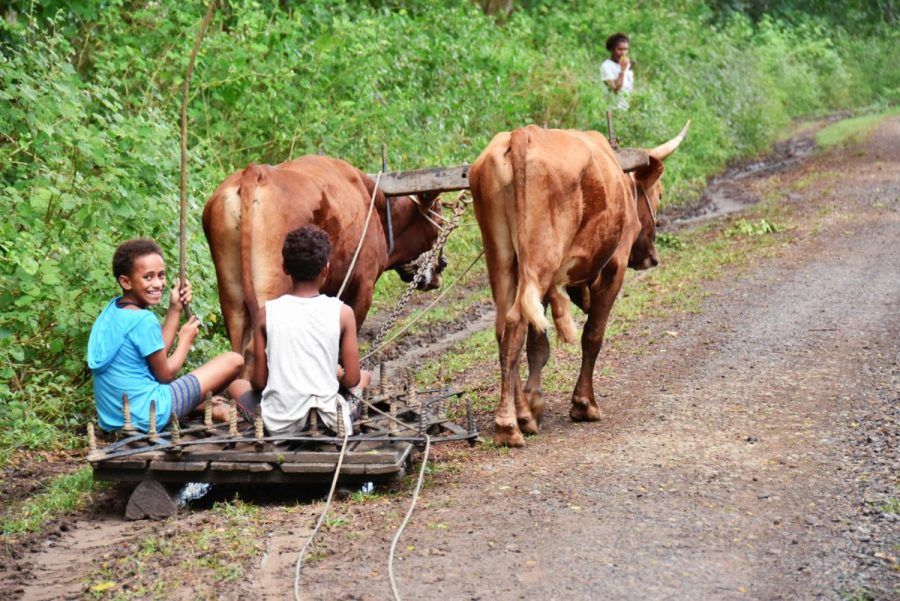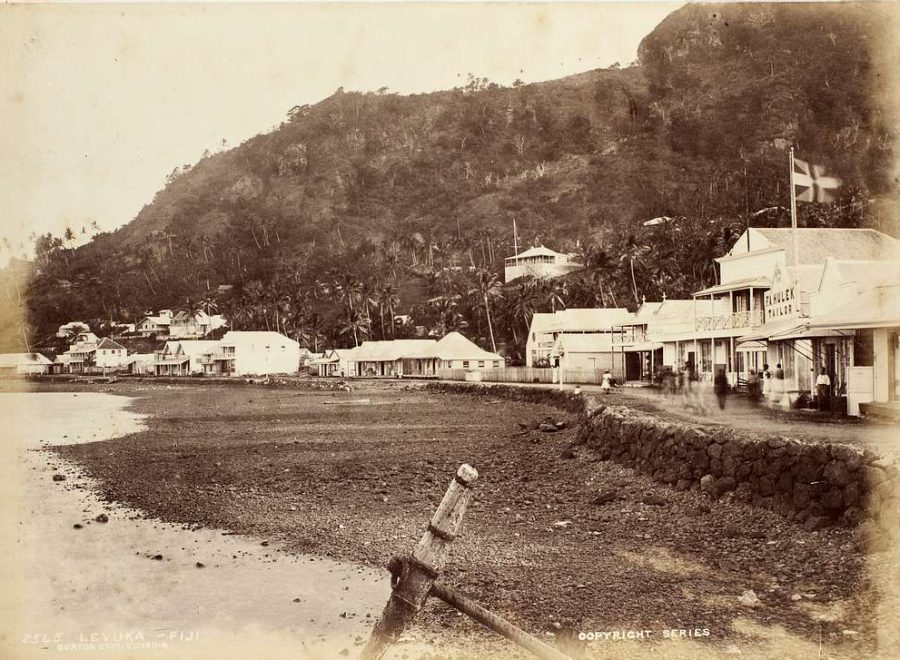Fijian Words and Phrases to Learn for Your Next Trip
Travelling is all about exploring different cultures. One of the basic ways to get started on becoming immersed in new surroundings is to start speaking the local language. Don’t get us wrong; you don’t need to be fluent in Fijian (or “vosa vakaviti“) to get by. Everyone speaks English. In fact, the three main languages in Fiji are Bauan Fijian, Fiji-Hindi and English. In the meantime, learn some basic words in Fijian to put a smile on the locals’ faces (not that they need much help) because, well, it just feels good! Give it a try with these ten Fijian words to learn when visiting Fiji!
First things first, you will need to know how to pronounce words in Fijian. On top of having slightly different vowel sounds compared to how you pronounce them in English, which you can learn more about in our Guide to the Fijian Language, other differences include the fact that “d” has an unwritten “n” in front of it. The city of Nadi, for instance, is pronounced “Nan-di”. Similarly, words with a “g” have an unwritten “n” in front, making words like “sega” pronounced “sen-ga”. Our favourite, “c”, is pronounced “th”, so the Mamanucas is pronounced “Ma-man-u-thas”.
If you find this article useful, you might also like our guide to Understanding the Fijian Culture, as well as Who are the People of Fiji.
Table of Contents
1. Bula! – Hello!
Means “hello” or “welcome”. This is the word you will hear the most while in Fiji! You’ll see locals saying it with a big smile, so do the same! To be polite, always return a “bula” with a bula. Another pronunciation tip: “b” is pronounced “mb” as in ba”mb”boo, so you will be able to hear this pronunciation when some locals say bula.
Fun Fact: Like much of the Fijian language, “Bula” actually has many meanings! Another definition of “Bula” is “Good!”
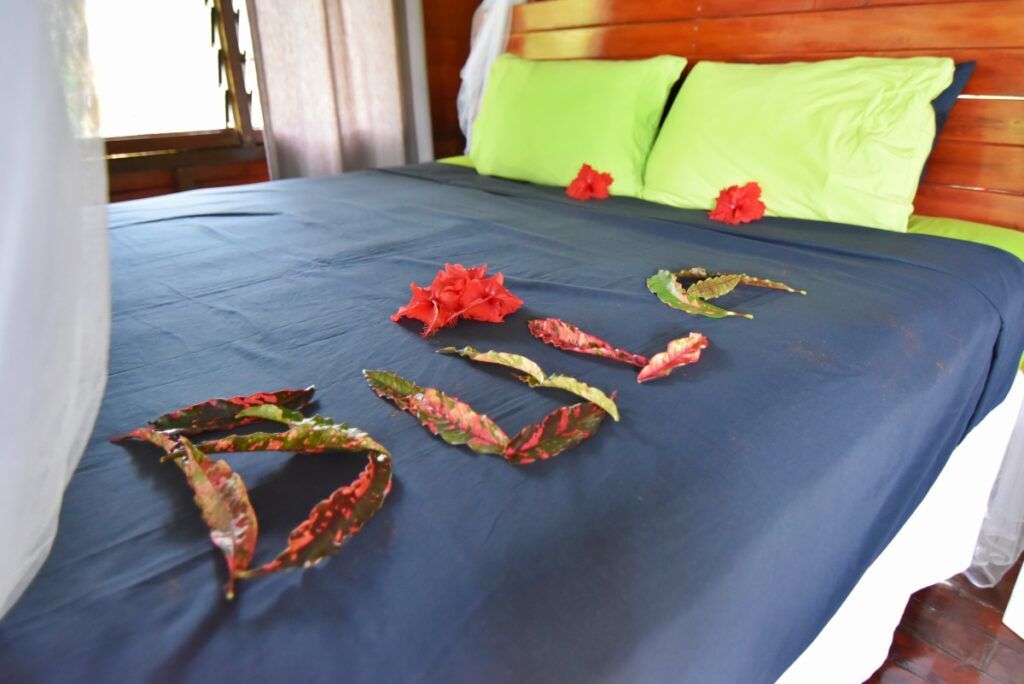 © FijiPocketGuide.com
© FijiPocketGuide.com2. Yadra! – Good Morning!
Start your day in Fiji with a cheerful “yadra” (pronounced “yan-dra”). This friendly greeting means “good morning” and is widely used across the islands. In the province of Ra, along the picturesque Suncoast, locals often use “yadra” instead of “bula” as a general “hello”. Don’t worry, though – a warm “bula” is always welcomed too!
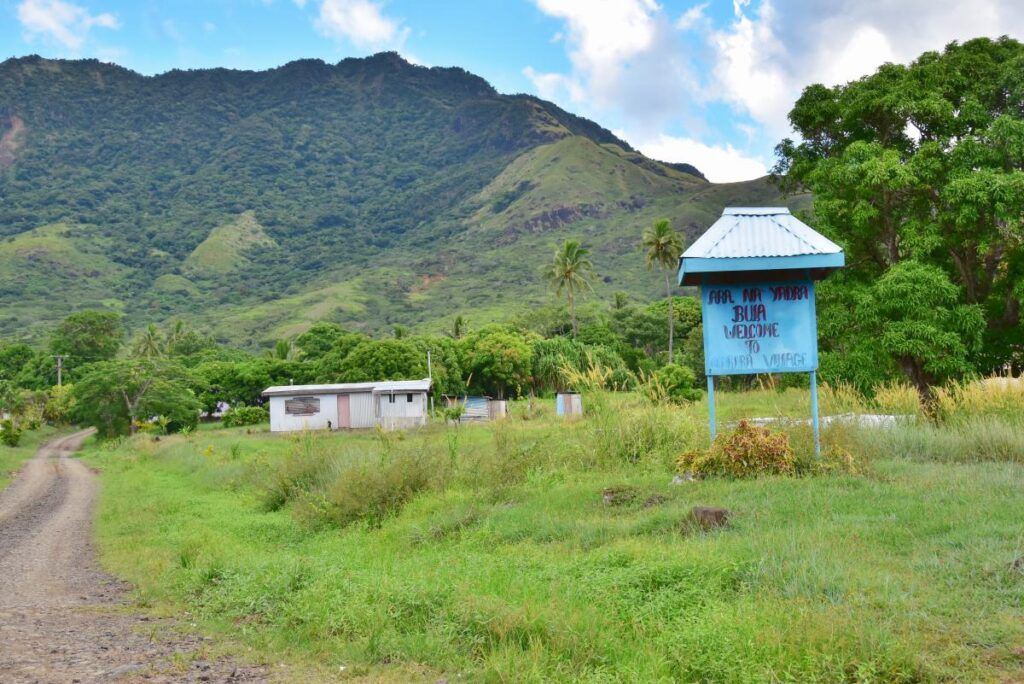 © FijiPocketGuide.com
© FijiPocketGuide.com3. Vinaka! – Thank You!
“Vinaka” means “thank you”. Again, this is another one you will always want to say when experiencing Fijian hospitality. When someone says “vinaka” after you have said “vinaka”, that’s a response to say “you’re welcome”.
“Vinaka vaka levu” means “thank you very much”.
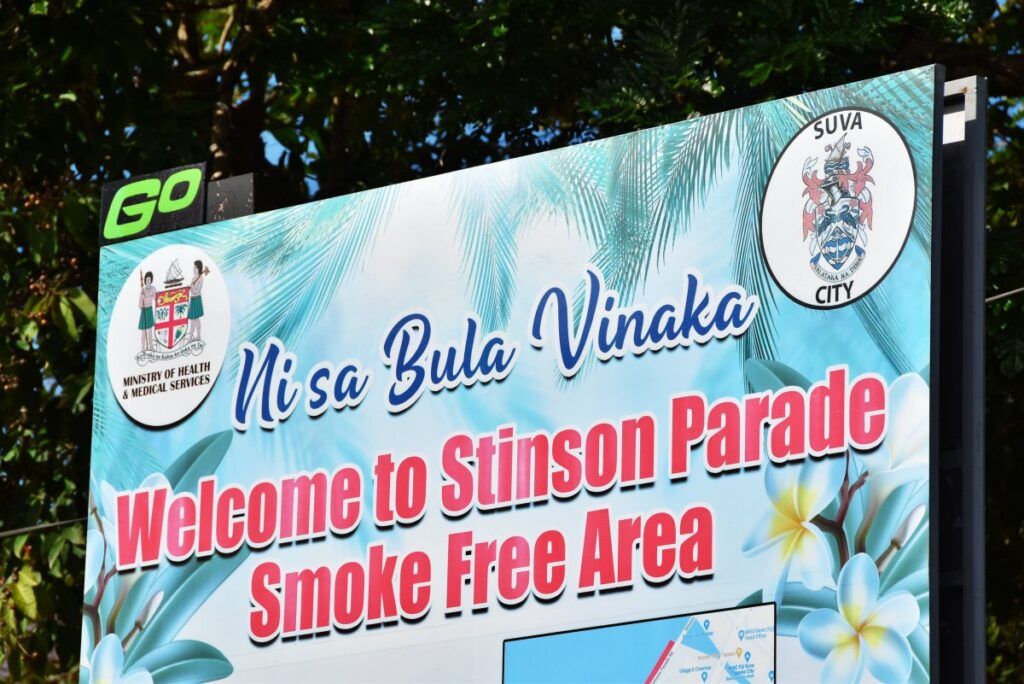 © FijiPocketGuide.com
© FijiPocketGuide.com4. Sota Tale! – See You Later!
When it’s time to bid farewell in Fiji, a cheery “sota tale!” is your go-to phrase. This casual goodbye literally means “see you later” and is perfect for wrapping up conversations with locals. Whether you’re leaving a bustling market or heading back to your resort, using this Fijian expression will surely bring smiles and leave a lasting impression.
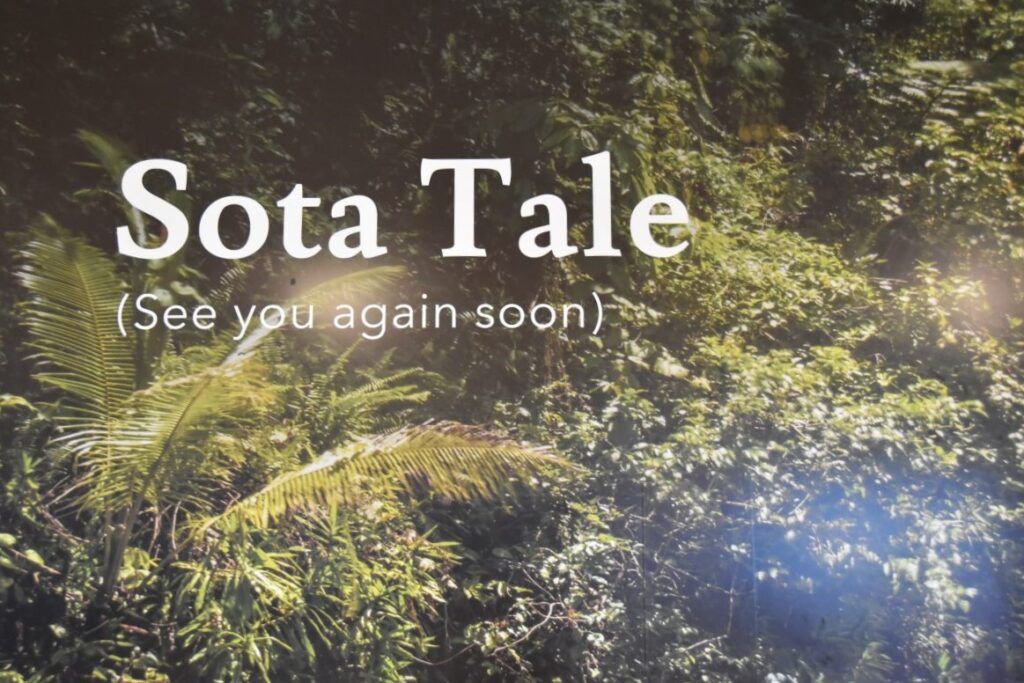 © FijiPocketGuide.com
© FijiPocketGuide.com5. Io / Sega – Yes / No
“Io” means “Yes”, and “Sega” means “No”. Simple, right?! Remember that the pronunciation of “sega” is “sen-ga”.
 © Pixabay
© Pixabay6. Sega Na Leqa – No Worries
In Fiji’s laid-back culture, “sega na leqa” (pronounced “sen-ga na leng-ga”) is a common phrase meaning “no worries.” It embodies the carefree Fijian spirit, similar to the famous “hakuna matata.” You’ll hear this reassuring expression often during your visit, perfectly capturing the relaxed island vibe. Embrace this attitude, and you’ll quickly fall in love with Fiji’s easy-going lifestyle.
 © FijiPocketGuide.com
© FijiPocketGuide.com7. Na yacaqu o … – My Name is …
A fantastic icebreaker in Fiji is introducing yourself with “Na yacaqu o [Name]” (pronounced “Na i-than-go o”), meaning “My name is [Name]”. To ask someone’s name, say “O cei na yacamu?” (pronounced “O thay na ya-tha-mu?”). You’ll love using these phrases to connect with friendly locals during your visit!
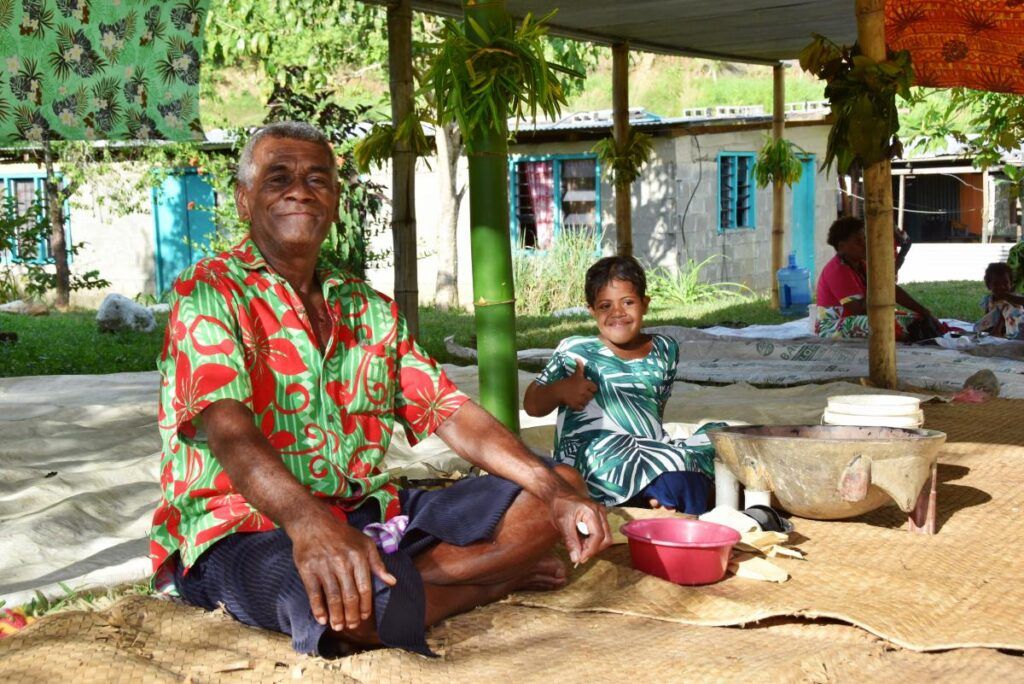 © FijiPocketGuide.com
© FijiPocketGuide.com8. Kana – Eat!
“Kana” means “to eat”! Personally, we think that that’s the most important word wherever you are in the world!
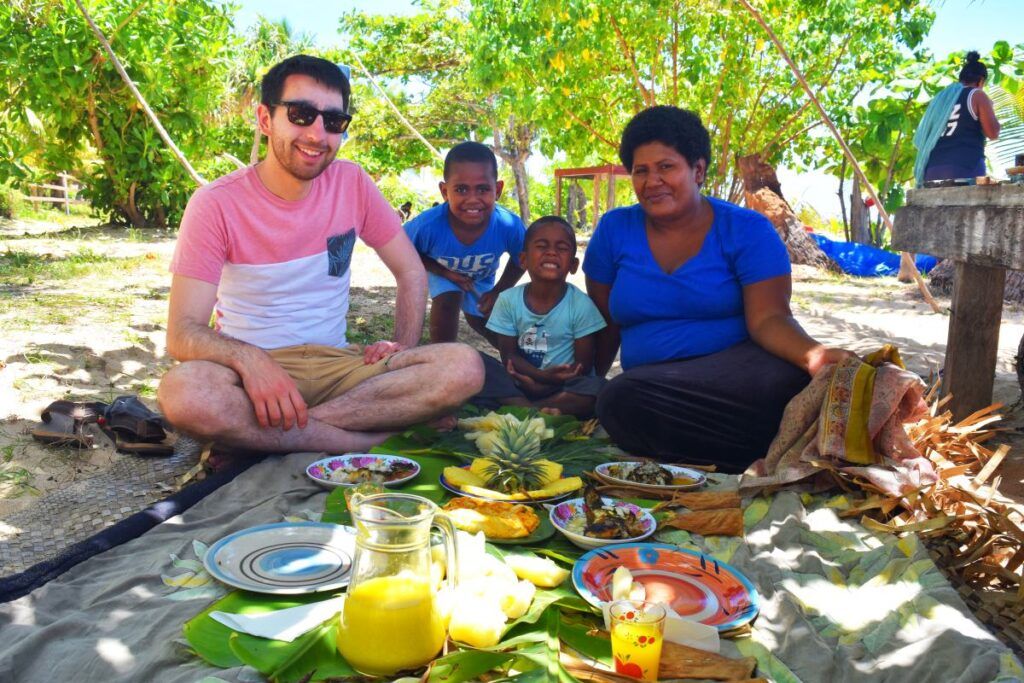 © FijiPocketGuide.com
© FijiPocketGuide.com9. Gunu – Drink
On a similar note to kana, “gunu” means “to drink”. And that’s the second-most important word.
 © FijiPocketGuide.com
© FijiPocketGuide.com10. Yaqona – Kava
“Kava” refers to a traditional Fijian drink. You’ll hear this word often in Fiji, as the locals are mad about kava, make from the ground-up root of a yaqona plant (pronounced “yan-gona”)! It’s so important to the Fijian culture that kava ceremonies are performed when new visitors arrive in a village. On that note, bringing yaqona when visiting a village is customary. The drink has an earthy taste and leaves the lips and tongue feeling numb. If you have too much kava, your head will also go numb. Check out our Guide to Fijian Village Etiquette for more advice.
 © FijiPocketGuide.com
© FijiPocketGuide.com11. Vaka Lailai – A Little
“Vaka lailai” means “A little”, as in: “I will only have a vaka lailai of kava.” You’ll also notice that many island names in Fiji end in “Lailai”, like Malolo Lailai and Waya Lailai, meaning the “little” version of said island. On the other hand, “Levu” means “Big”!
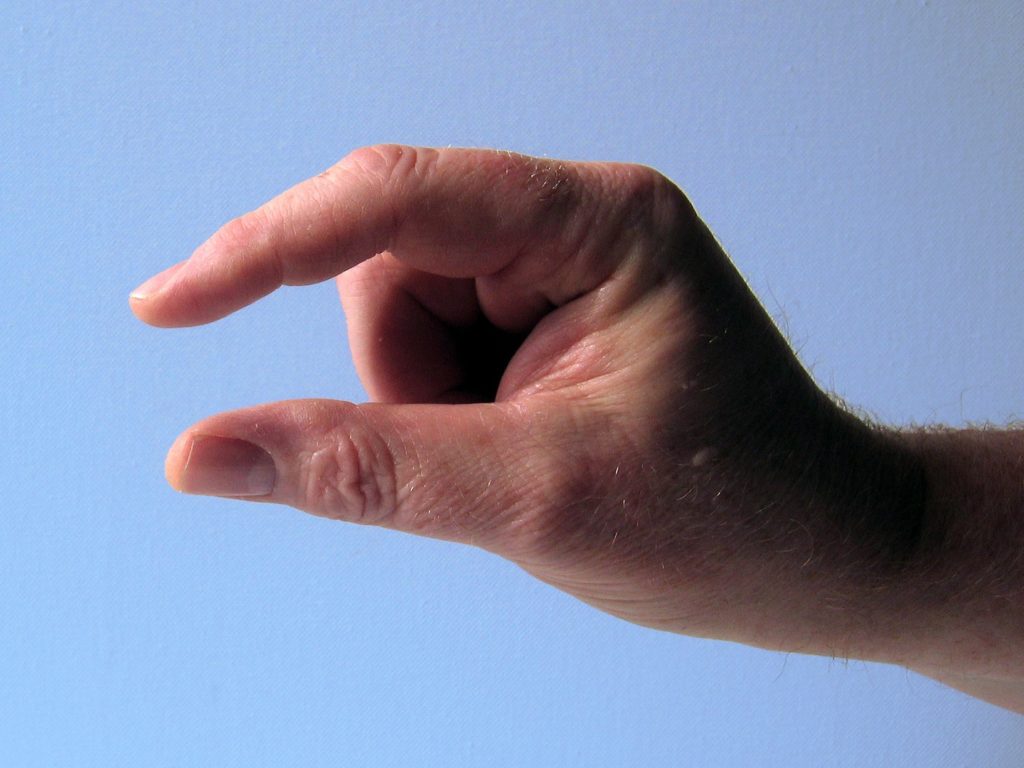 © Pxhere
© Pxhere12. Vale Lailai – Toilet
“Vale lailai” means “Toilet” or more literally “Little room”. It’s always a good word to know, especially in desperate situations.
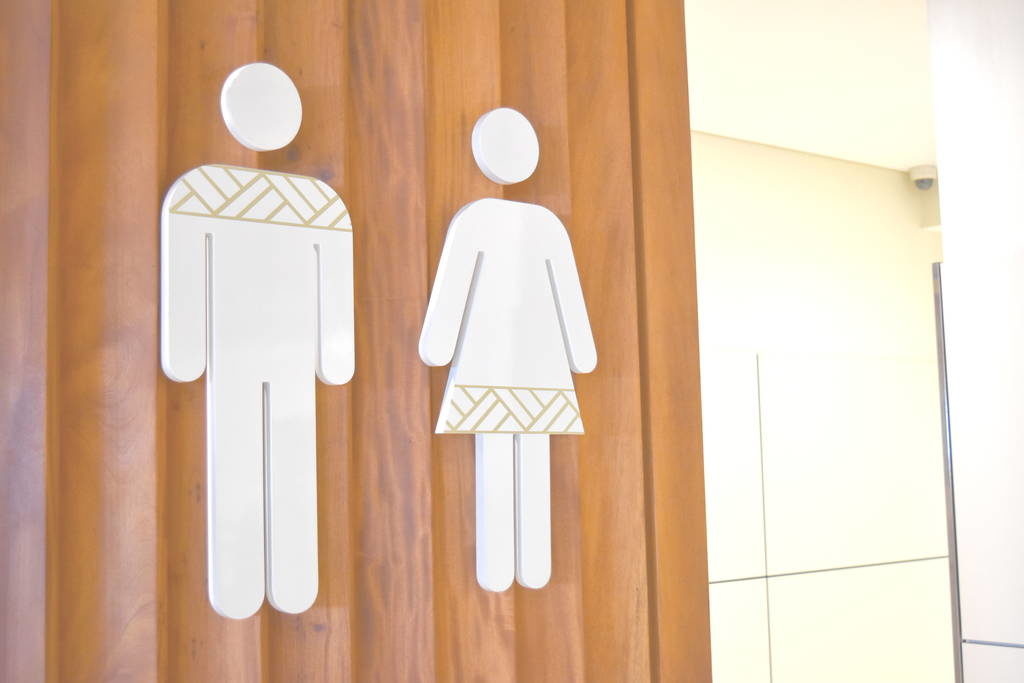 © Fiji Pocket Guide
© Fiji Pocket Guide13. Sitoa – Shop
“Sitoa” means “shop”. You know, those places where you buy things? Learn more about shopping in Fiji in The Guide to Shopping in Fiji!
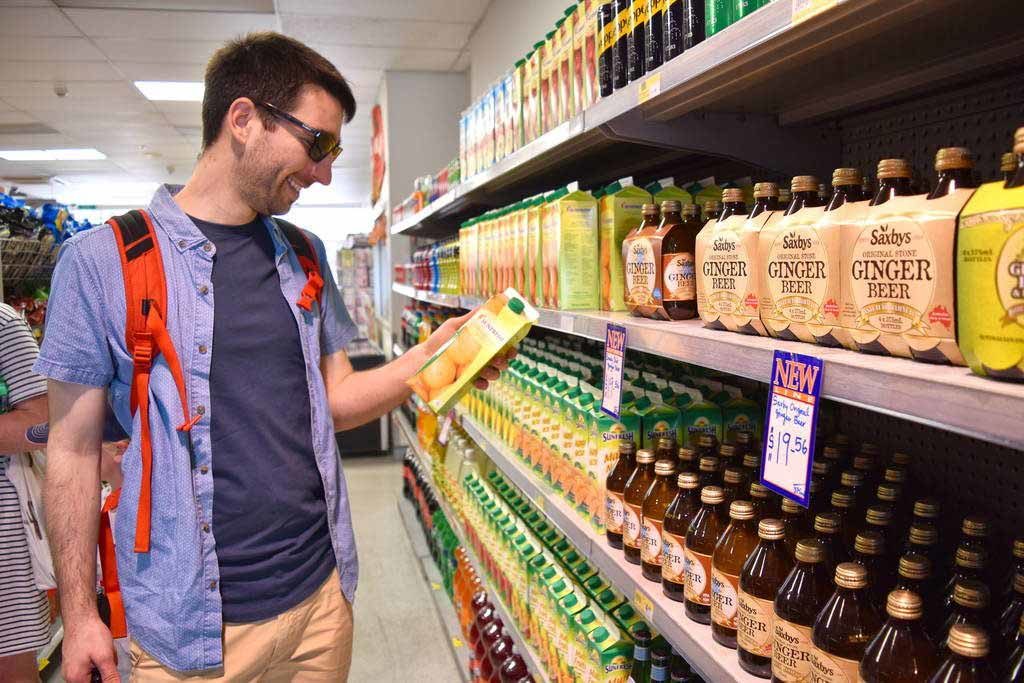 © FijiPocketGuide.com
© FijiPocketGuide.com14. Totoka – Beautiful
When you encounter something truly stunning in Fiji, express your admiration with “totoka!” This versatile word describes everything from breathtaking sunsets to pristine beaches. Locals will appreciate your enthusiasm for their country’s natural beauty. Use it to compliment a delicious meal or a particularly scenic view, and you’ll fit right in with the laid-back Fijian vibe.
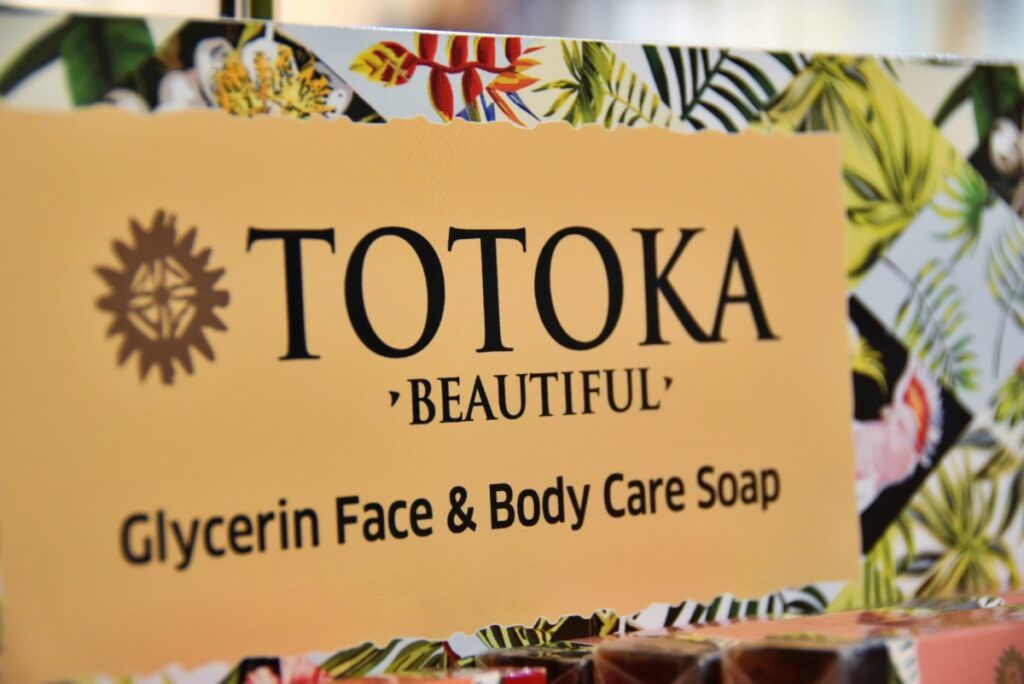 © FijiPocketGuide.com
© FijiPocketGuide.com15. Dua, Rua, Tolu… – One, Two, Three…
… va, lima, ono, vitu, walu, ciwa, tini! Now you know how to count from one to ten in Fijian!
If you want to get really fancy, the Fijian number system follows a decimal structure similar to English. After ten, numbers are formed by combining “tini” (ten) with the single digits. For example:
11 – tini ka dua (ten and one)
12 – tini ka rua (ten and two)
And so on up to 19. Then, for multiples of ten, a different pattern is used:
20 – ruasagavulu
30 – tolusagavulu
40 – vasagavulu
This system continues up to higher numbers, with specific words for hundred (drau) and thousand (udolu).
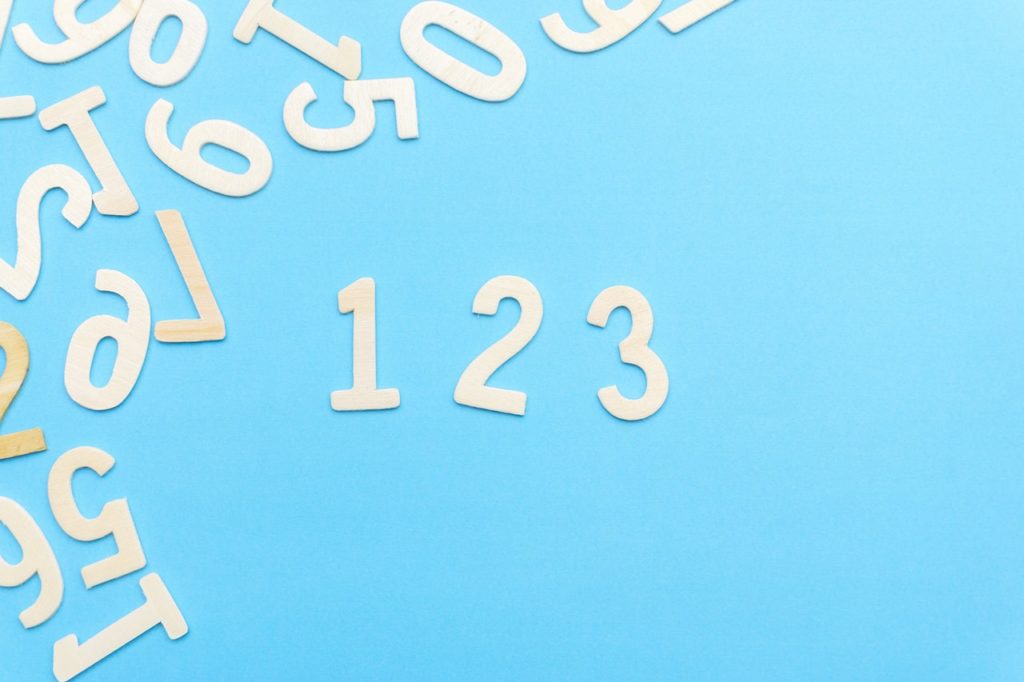 © Pexels
© PexelsMore About Fijian Words and Culture
That’s it for the Fijian words to learn. For more insights into the Fijian culture, take a look at the following:
Finally, for more cultural know-how, check out The Guide to the Fiji Culture for Travellers.
Sources:
The information in this guide has been compiled from our extensive research, travel and experiences across Fiji and the South Pacific, accumulated over more than a decade of numerous visits to each destination. Additional sources for this guide include the following:
- Tourism Fiji (General travel advice - Updated [2025])
- Fiji Immigration (Visa and immigration advice - Updated [2025])
- Fiji Revenue & Customs Service (Customs and visitor taxes - Updated [2025])
- Biosecurity Authority of Fiji (Biosecurity advice - Updated [2025])
- Fiji Meteorological Service (Weather forecast and warnings - Updated [2025])
- Fiji Bureau of Statistics (Statistics and travel data - Updated [2025])
- Ministry of Tourism and Civil Aviation (Tourism statistics - Updated [2025])
- Land Transport Authority (Road safety advice - Updated [2025])
- Safe Travel (New Zealand travel advisory for Fiji - Updated [2025])
- Smart Traveller (Australia travel advisory for Fiji - Updated [2025])
- Travel.State.Gov (U.S. travel advisory for Fiji - Updated [2025])
- SPTO (Pacific tourism advice - Updated [2025])
- Fiji Hotel and Tourism Association (Tourism trade association - Updated [2025])
Our editorial standards: At Fiji Pocket Guide, we uphold strict editorial standards to ensure accurate and quality content.

About The Author
Robin (Ruveni) C.
This article was reviewed and published by Robin, the co-founder of Fiji Pocket Guide. He has lived, worked and travelled across 16 different countries before settling in the South Pacific, so he knows a thing or two about planning the perfect trip in this corner of the world. Robin is also the co-founder of several other South Pacific travel guides and is a regular host of webinars with the South Pacific Tourism Organisation.



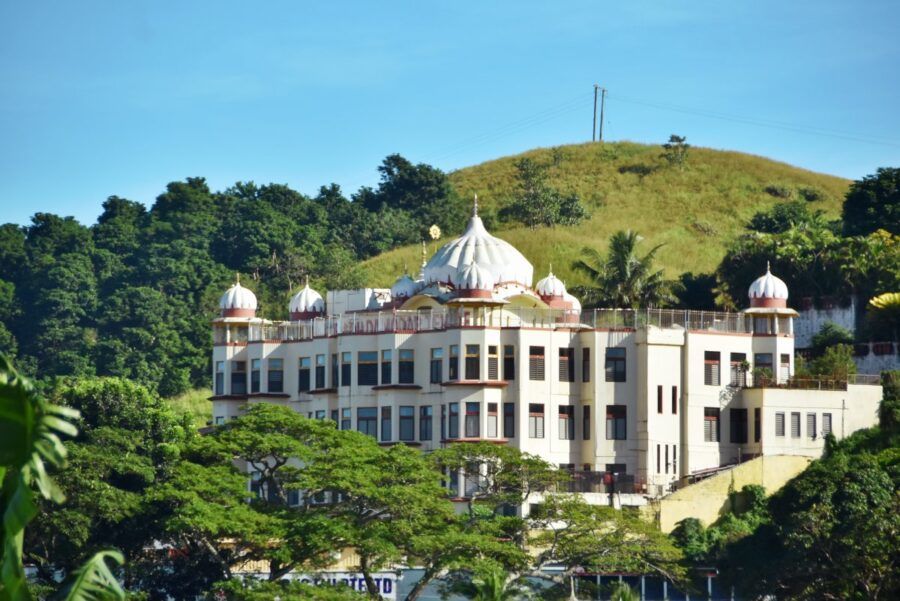
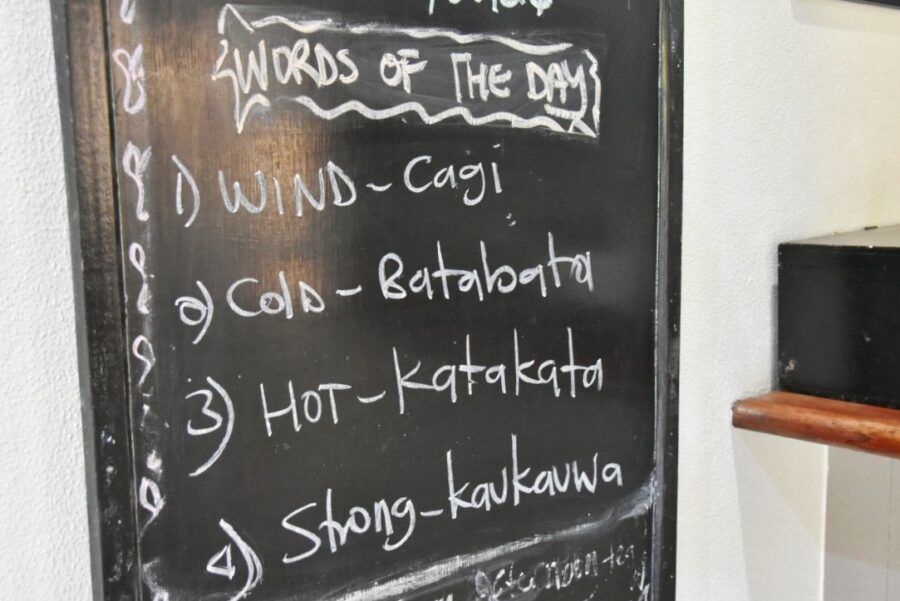
![A Traveller's Guide to the Fiji Cultures 🌺 [2025]](https://fijipocketguide.com/wp-content/uploads/2021/12/Cicia-Lau-Village-School-Children-Meke-CREDIT-Fiji-Pocket-Guide--e1729536240232-900x490.jpg)
